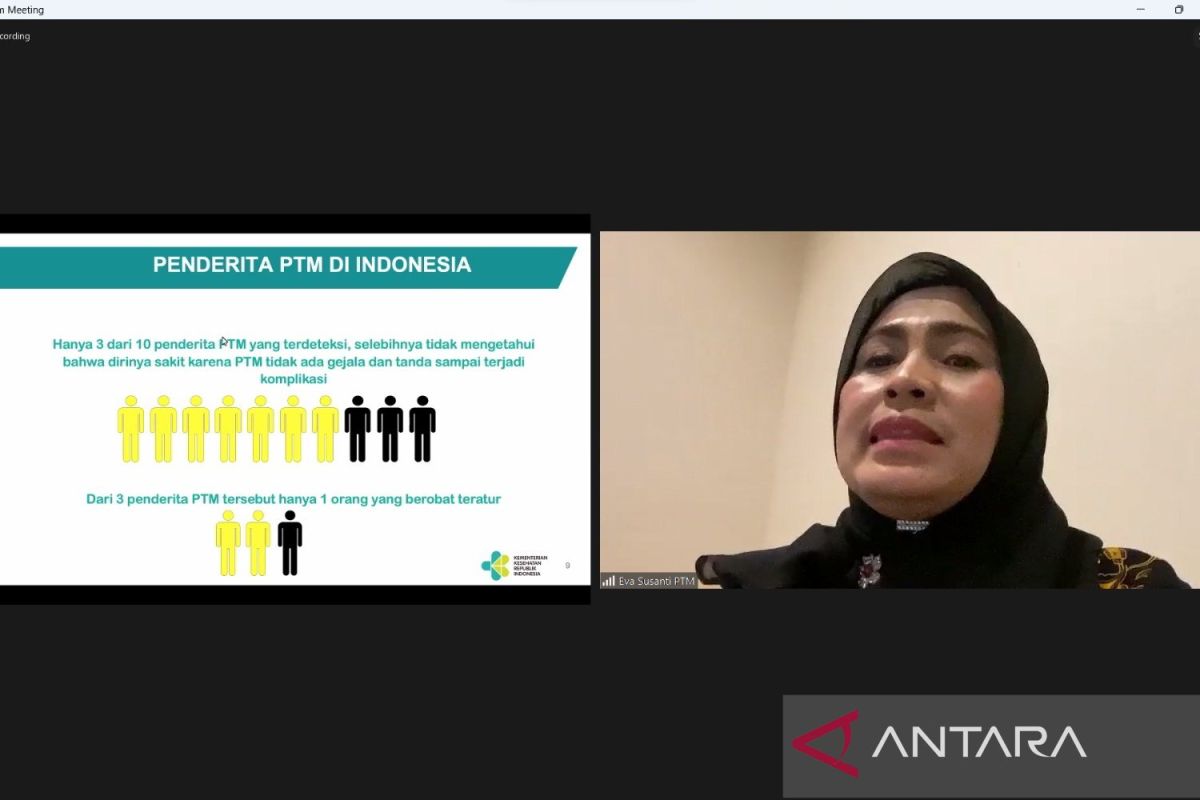"The results of national NCD screenings have only shown a figure of 16.4 percent," she highlighted at a press conference on the 2023 World Heart Day, which was followed online from here on Monday.
Susanti informed that the province with the highest screening achievement was West Nusa Tenggara (NTB) with 48 percent of its population undergoing screening, followed by Banten with 39.2 percent.
Meanwhile, the province with the lowest screenings was Papua with 2.2 percent, and Yogyakarta and Bali were next with 6.8 and 6.9 percent, respectively.
She explained that the screening included checks for blood sugar, blood pressure, diabetes, abdominal circumference, and abdominal obesity.
To expand the coverage of early detection, the Ministry of Health is carrying out screenings from the lowest level of health service facilities.
"Such as in community health centers (puskesmas) spread in 7,230 sub-districts, prime integrated health posts spread in 85 thousand villages, and integrated health posts spread in 300 thousand hamlets/neighborhoods, up to door-to-door visits with a total of 273.5 million population (targeted)," she said.
In addition, the ministry has prepared a number of programs to support early detection efforts.
The programs include a training program for 1.5 million cadres of integrated health posts (posyandus) and training for general practitioners and nurses on the use of electrocardiographs and automated external defibrillators (AEDs).
The Health Ministry is also making efforts to fulfill medical equipment needs for carrying out early detection at puskesmas and to expand screening packages for 14 priority diseases under the National Health Insurance (JKN) program.
"(Efforts to ensure) Equitable access and quality of health are also being carried out through support and referral systems, both at the primary and secondary levels," she added.
She said she hoped that with the help of those programs, this year, the target of screening 140 million people for non-communicable diseases can be reached in order to reduce the risk of fatality due to NCDs in Indonesia.
Related news: Internists must help curb non-communicable diseases: Hartono
Related news: Health cadres needed in non-communicable disease prevention: ministry
Translator: Sean Muhamad, Raka Adji
Editor: Rahmad Nasution
Copyright © ANTARA 2023












